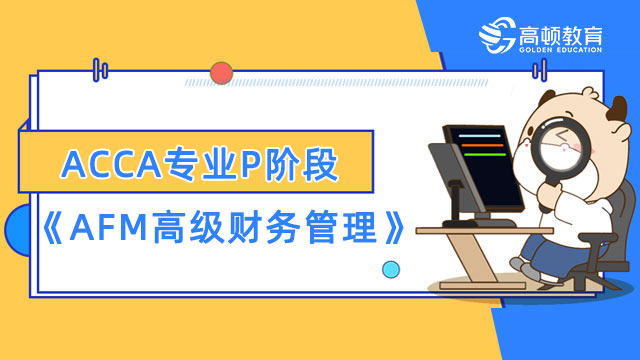会员翻译:ACCA考官文章Professional Skepticism-P7
来源:
高顿网校
2015-11-03
今天高顿网校小编为大家带来了ACCA P7科目考官文章《Professional Skepticism》,此文由ACCA准会员申柳杰翻译,他是湖南商学院2011级学生;现在悉尼麦考瑞大学读会计硕士,方便大家理解。
译者注:
职业怀疑是道德模块重要内容,虽然考试中所占分值较低,但在考试中应用范围较广,出现频率高,需熟练掌握。
主要内容:
1.职业怀疑的定义及要求;
2.在不同阶段,职业怀疑的不同要求;
3.职业怀疑在审计中的具体应用。
In recent years regulatory bodiesincluding the International Auditing and Assurance Standards Board (IAASB) andthe UK Financial Reporting Council (FRC) have issued documents highlighting theimportance of professional scepticism in an audit of financial statements. Theobjective of this article is to explain the importance of professionalscepticism as an essential part of the auditor’s mindset, and to consider thereasons why approaching an audit with an attitude of professional scepticism isbecoming increasingly important.
本文主旨:保持职业怀疑很重要,而且越来越重要
WHAT IS PROFESSIONAL SCEPTICISM? 什么是职业怀疑?
The glossary of terms contained in theIAASB’s Handbook of International Quality Control, Auditing, Review, OtherAssurance, and Related Services Pronouncements contains the following definitionof the term ‘professional scepticism’: An attitude that includes a questioningmind, being alert to conditions which may indicate possible misstatement due toerror or fraud, and a critical assessment of evidence.
职业怀疑,是指一种质疑的态度,对可能导致错报的错误舞弊保持警醒,以及对证据进行批判性的评估。
ISA 200, Overall Objectives of theIndependent Auditor and the Conduct of an Audit in Accordance withInternational Standards on Auditing, contains more guidance on how and why theauditor should act with an attitude of professional scepticism. ISA 200contains a specific requirement in relation to professional scepticism:
ISA200针对独立审计师的职业怀疑提出了要求:
The auditor shall plan and perform anaudit with professional scepticism recognising that circumstances may existthat cause the financial statements to be materially misstated.
审计师在计划和执行审计时,需要运用职业怀疑来识别可能引起财报重大错报的情形。
This overall objective is thefundamental driver for the relevant learning outcomes within the Paper P7syllabus, namely:
P7对职业怀疑这一知识点有以下要求:
To discuss the importance ofprofessional scepticism in planning and performing an audit (B1e), and
1、讨论职业怀疑在审计计划和执行过程中的重要性。
To assess whether an engagement hasbeen planned and performed with an attitude of professional scepticism, andevaluate the implications (B1f).
2、评估在签订审计契约时是否保持了恰当的职业怀疑。
The application paragraphs of ISA 200contain more guidance on what is meant by applying professional scepticism whenconducting an audit:
ISA200包括了一些跟职业怀疑相关的例子:
Professional scepticism includes beingalert to, for example:
Auditevidence that contradicts other audit evidence obtained.
Informationthat brings into question the reliability of documents and responses toinquiries to be used as audit evidence.
Conditionsthat may indicate possible fraud.
Circumstancesthat suggest the need for audit procedures in addition to those required by theISAs. (ISA 200 A.18).
要对以下情况保持警惕:
相互矛盾的审计证据,
影响审计证据可依赖性的信息,
可能反映舞弊的情形,
可能需要增加审计步骤的情形。
Essentially, ISA 200 requires the useof professional scepticism as a means of enhancing the auditor’s ability toidentify risks of material misstatement and to respond to the risks identified.Professional scepticism is closely related to fundamental ethicalconsiderations of auditor objectivity and independence. Professional scepticismis also linked to the application of professional judgment by the auditor. Anaudit performed without an attitude of professional scepticism is not likely tobe a high quality audit. At its core the application of professional scepticismshould help to ensure that the auditor does not neglect unusual circumstances,oversimplify the results from audit procedures or adopt inappropriateassumptions when determining the audit response required to address identifiedrisks, all of which should improve audit quality.
保持职业怀疑是加强审计师识别重大错报风险和应对风险能力的一种方法。职业怀疑与基本道德准则要求的客观性和独立性息息相关。职业怀疑最重要的一点就是确保审计师没有忽视不正常的情况。
HOW DOES THE AUDITORAPPLY PROFESSIONAL SCEPTICISM?
审计师如何发挥自己的职业判断?
The auditor is likely to applyprofessional scepticism at various stages from client acceptance and at variouspoints during the audit process, and some typical examples are given below:
不同阶段,不同表现。
When assessing engagement acceptance –at this stage the auditor should consider whether the management of theintended audit client acts with integrity and whether there are any mattersthat may impact on the auditor being able to act with professional scepticismif they accept the engagement, such as ethical threats to objectivity.
接受审计契约时---审计师需要考虑被审计客户的管理层是否秉公处事,是否存在影响职业怀疑的情况。
When performing risk assessmentprocedures – an auditor should be sceptical when performing risk assessmentprocedures at the planning stage of the audit. For example, when discussing theresults of analytical procedures with management, the auditor should not acceptmanagement’s explanations at face value, and should obtain corroboratoryevidence for the explanations offered.
进行风险评估步骤时---审计师应保持怀疑态度,举个例子:与管理层讨论分析性步骤的结果时,审计师不应轻信客户提供的片面之词,而应该获取相关证据来支持其解释。
When obtaining audit evidence – theauditor should be ready to challenge management, especially on complex andsubjective matters and matters that have required a degree of judgement to beexercised by management. The reliability and sufficiency of evidence should beconsidered, especially where there are risks of fraud. There may also bespecific issues arising during an audit which impacts on professionalscepticism – for example, if management refuses the auditor’s request to obtainevidence from a third party. The auditor will have to consider how much trustcan be placed on evidence obtained from management – for example, evidence inthe form of enquiry with management or written representations obtained frommanagement. ISA 200 states that ‘a belief that management and those chargedwith governance are honest and have integrity does not relieve the auditor ofthe need to maintain professional scepticism or allow the auditor to besatisfied with less than persuasive audit evidence when obtaining reasonable assurance’.
在获取审计证据的过程中---审计师要随时准备向客户管理层“宣战”,尤其是涉及到管理层主观判断的事项,需要对客户所提供的证据的可依赖性和充分性进行考虑。
When evaluating evidence – the auditorshould critically assess audit evidence and be alert for contradictory evidencethat may undermine the sufficiency and appropriateness of evidence obtained.
在评估审计证据时---审计师对待审计证据要谨慎细致,对其中自相矛盾之处保持警惕。
The auditor should also applyprofessional scepticism when forming the auditor’s opinion, by considering theoverall sufficiency of evidence to support the audit opinion, and by evaluatingwhether the financial statements overall are a fair presentation of underlyingtransactions and events.
在出具审计意见时---考虑获得的审计证据能否充分支撑审计意见,以及财务报表是否真实的反映了发生的交易和事项。
Ultimately, the application ofprofessional scepticism should reduce detection risk because it enhances theeffectiveness of applied audit procedures and reduces the possibility that theauditor will reach an inappropriate conclusion when evaluating the results ofaudit procedures.
保持职业怀疑还能有效降低检查风险的发生,因为审计步骤变得更加有效,审计师得出不恰当意见的可能性也最终降低。
SPECIFIC APPLICATIONS OF PROFESSIONAL SCEPTICISM
职业怀疑的具体应用
Fraud 舞弊
ISA 240, The Auditor’s ResponsibilitiesRelating to Fraud in an Audit of Financial Statements, specifically refers toprofessional scepticism stating that ‘when obtaining reasonable assurance, the auditoris responsible for maintaining professional scepticism throughout the audit,considering the potential for management override of controls and recognisingthe fact that audit procedures that are effective for detecting error may notbe effective in detecting fraud’ (ISA 240.8).
ISA240特别提到,考虑到管理层可能滥用职权,审计师有责任在审计过程中保持职业怀疑,从而得出恰当意见和合理保证。
ISA 240 goes on to state a specificrequirement for the auditor: ‘The auditor shall maintain professionalscepticism throughout the audit, recognising the possibility that a materialmisstatement due to fraud could exist, notwithstanding the auditor’s pastexperience of the honesty and integrity of the entity’s management and thosecharged with governance’ (ISA240.12).
就算被审计对象有良好的历史表现记录,但审计师在审计过程中依然需要保持职业怀疑,确认由舞弊引起的重大错报风险是否存在。
The application paragraphs of ISA 240emphasise the importance of assessing the reliability of the information to beused as audit evidence and the controls over its preparation and maintenance.In addition, ISA 240 states that ‘management is often in the best position toperpetrate fraud. Accordingly, when evaluating management’s responses toinquiries with an attitude of professional scepticism, the auditor may judge itnecessary to corroborate responses to inquiries with other information’ (ISA240.A17). This is significant in that ISA 240 reminds the auditor that whenmanagement provides the auditor with audit evidence – be that in the form ofanswers to enquiries, written representations or other forms of documentaryevidence – the auditor should carefully consider the integrity of that evidenceand whether additional corroboratory evidence should be obtained from a morereliable source.
ISA240还强调了评估被用作审计证据的信息的重要性。尤其是通过询问得到的答案和管理层申明等证据,它们的真实可靠性需要被证明。
Other aspects of an audit whereprofessional scepticism may be important
在审计的其他方面,职业怀疑同样重要。(主要考虑主观性较强,较为复杂的一些内容)
The IAASB has issued a Staff Questionsand Answers document entitled Professional Scepticism in an Audit of FinancialStatements, which outlines some of the areas of the audit where the use ofprofessional scepticism may be important. These are outlined below and largelyrelate to areas of the audit that are complex, subjective or highly judgmental.IAASB发了一份问答文件列明了一些需要运用职业怀疑的领域,这些领域都比较复杂,主观性强(需大量判断):
Accounting estimates – this can include fair value accountingestimates, the use of significant assumptions by management in developingaccounting estimates, and reviewing the judgements and decisions used bymanagement for management bias in developing accounting estimates.
会计估计--包括公允价值会计估计,在完善会计估计时所使用的重要假设,以及复核管理层所做的判断和决定。
Going concern– the auditor should reviewmanagement’s assessment of going concern and whethermanagement’s plans are feasible, this beingparticularly important where there is a significant doubt over the entity’s ability to continue as a going concern.
可持续经营--评估企业是否能够在可持续经营的假设上进行日常会计处理,以及管理层制定计划的可行性。
Related party relationships and disclosures– itcan be difficult to obtain information on related parties, as knowledge may beconfined to management meaning that the auditor may have to rely on managementto identify all related parties The auditor should also be sceptical whenassessing the business rationale behind related party transactions.
相关方关系及披露---要想获取关联方信息并不容易,所以审计师需要依赖管理层给出的说明来识别关联方。审计师要对关联方交易背后的经营理念保持怀疑。
Consideration of laws and regulations– theauditor should be alert throughout the audit for indications that there mayhave been a suspected non-compliance with laws and regulations.
相关法律法规-审计师对有可能违法律法规的情形要保持警惕。
THE INCREASINGIMPORTANCE OF PROFESSIONAL SCEPTICISM
日益重要的职业怀疑
The IAASB Staff Questions and Answersdocument contains a foreword by Arnold Schilder, IAASB chairman, whichemphasises the increasing need for auditors to apply professional scepticism.One reason for this is the increased use of judgment and subjectivity inmanagement’s financial reporting decisions. This is due to the application ofInternational Financial Reporting Standards (IFRS), which are largelyprinciple-based, and often require the preparers of financial statements toexercise significant judgment when making decisions on accounting treatments.
职业怀疑重要性逐渐增加,其中一个原因在于IFRS的普及,越来越多的主观判断被应用到了财务报告以及公司决策中。
The global financial crisis of2008–2009 also focused attention on professional scepticism. Auditors in manyjurisdictions were criticised for not applying sufficient professionalscepticism at that time, particularly in relation to the audit of fair values,related party transactions and going concern assessments. One of the reasonsfor the IAASB issuing the Staff Questions and Answers document was tore-emphasise the importance of professional scepticism especially in the auditof financial statements where there is a high risk of material misstatement dueto financial distress.
2008-2009年发生的全球金融危机同样也将关注点放到了职业怀疑上。很多审计师没有保持足够的职业怀疑,尤其是在公允价值,关联方交易以及可持续经营评估的相关问题上。
The UK’s Financial Reporting Council(FRC) has issued a Briefing Paper on professional scepticism which suggeststhat professional scepticism is the cornerstone of audit quality. It proposesthat the auditor should actively look for risks of material misstatement, andthat this is only possible when a high degree of knowledge of the auditedentity’s business and the environment in which it operates is obtained. Thedocument contains proposals for how audit firms can encourage audit teams toapproach audits with a sceptical mindset, and it considers that some auditfirms may need to change their culture to allow this to happen.
FRC认为,审计师的职业怀疑是审计质量的基石,审计师应该积极寻找重大错报风险,这要求审计师有扎实的行业背景知识储备。
The IAASB’s Work Plan for 2015–16,Enhancing Audit Quality and Preparing for the Future – issued in December 2014– prioritises the issues that impact on audit quality, including group audits,quality control, and professional scepticism. It is clear the professionalscepticism is to stay on the agenda of the regulatory authorities for some timeto come, as it is so intrinsically linked to other key audit issues such asaudit quality, ethics and independence and, ultimately, the confidence that thepublic has in the auditing profession.
IAASB2015-2016年度工作计划重点强调加强未来的审计质量。这其中被重点提到的部分有:集团审计,质量控制和职业怀疑。
CONCLUSION 总结
The IAASB states that ‘the need for professional scepticism cannot be overemphasised’ and that ‘adopting and applying a sceptical mindset is ultimately a personal and professional responsibility to be embraced by every auditor’. Given the increasingly complex and subjective nature of IFRS requirements, auditors must be confident to challenge management on a range of matters relevant to the preparation of the financial statements and the IAASB and national bodies such as the FRC are keen to support auditors in the application of professional scepticism. This, they believe, is an essential element of quality control, and in safeguarding the credibility of the audit opinion.
职业怀疑的重要性,再怎么强调也不为过。IFRS要求日渐复杂,审计师也需要加以应对,在遇到问题时要敢于挑战管理者的权威,保持职业怀疑态度。只有这样,审计意见的可靠性才能得到保证。
高顿网校温馨提醒
各位考生,2015年ACCA备考已经开始,为了方便各位学员能更加系统地掌握考试大纲的重点知识,帮助大家充分备考,体验实战,高顿网校开通了全免费的ACCA题库(包括精题真题和全真模考系统),题库里附有详细的答案解析,学员可以通过多种题型加强练习。戳这里进入ACCA免费题库>>>
| ACCA网络课程 | 课程专业名称 | 讲师 | 试听 |
 85%的人正在学习该课程 85%的人正在学习该课程 | ACCA 全维度网课体验课程 实景课堂与独立录制 覆盖所有知识点,根据学习计划推进学习进度 | 高顿名师 |  |
 70%的人正在学习该课程 70%的人正在学习该课程 | ACCA网课全科卡(8.2折) 为零基础刚开始学习ACCA的学员特别定制 | 高顿名师 |  |
精彩推荐:
版权声明:本条内容自发布之日起,有效期为一个月。凡本网站注明“来源高顿教育”或“来源高顿网校”或“来源高顿”的所有作品,均为本网站合法拥有版权的作品,未经本网站授权,任何媒体、网站、个人不得转载、链接、转帖或以其他方式使用。
经本网站合法授权的,应在授权范围内使用,且使用时必须注明“来源高顿教育”或“来源高顿网校”或“来源高顿”,并不得对作品中出现的“高顿”字样进行删减、替换等。违反上述声明者,本网站将依法追究其法律责任。
本网站的部分资料转载自互联网,均尽力标明作者和出处。本网站转载的目的在于传递更多信息,并不意味着赞同其观点或证实其描述,本网站不对其真实性负责。
如您认为本网站刊载作品涉及版权等问题,请与本网站联系(邮箱fawu@gaodun.com,电话:021-31587497),本网站核实确认后会尽快予以处理。
点一下领资料
【整理版】ACCA各科目历年真题
真题高频考点,刷题全靠这份资料
下载合集
acca全科学习思维导图
梳理核心考点,一图看懂全部章节
下载合集
2023年acca考纲解析
覆盖科目重难点,备考按照计划走
下载合集
acca备考 热门问题解答
- acca考试怎么搭配科目?
-
建议优先选择相关联的科目进行搭配报考,这样可以提高备考效率,减轻备考压力,1、F1-F4:为随时机考科目,难度较低,这里可以自行随意选择考试顺序。2、F5-F9:如果你的工作的和财务会计或者审计有关、或者你比较擅长财务和审计的话,推荐先考F7和F8。你可以选择一起考ACCA考试科目F7和F8或者先考F7(8)再考F8(7),这就要取决你一次想考几门。3、P阶段:选修科目中,建议企业首选AFM!第二部分科目进行选择,如果AA和SBR掌握学生更好,可以通过选择AAA,如果SBL掌握的好,可以自己选择APM。
- acca一共几门几年考完?
-
acca一共有15门考试科目,其中有必修科目和选修科目,考生需要考完13门科目才能拿下证书。
- acca一年考几次?
-
acca一年有4次考试,分别是3月、6月、9月和12月,分季机考科目是采取的这类四个考季的模式,而随时机考则是没有这方面的时间规定限制,可以随报随考。
- acca的含金量如何?
-
ACCA证书的含金量是比较高的,从就业、能力提升、全球认可等角度来说,都是比较有优势的证书,其含金量主要表现在以下几个方面:1、国际化,认可度高;2、岗位多,就业前景好;3、缺口大,人才激励。
严选名师 全流程服务
其他人还搜了
热门推荐
-
acca专业阶段考试科目有哪些?究竟都考些什么? 2023-04-23
-
accaP阶段科目考完需要多久?速戳了解! 2023-03-28
-
ACCA高级课程是哪几门?和基础课程比难度怎么样? 2023-03-17
-
sbr和sbl哪个难?accaP阶段先考哪个? 2023-03-16
-
accaP阶段报名费是多少?一文介绍全了! 2023-03-14
-
accaP阶段有哪些科目?各科目详细介绍! 2023-03-14
-
accap阶段考试顺序是怎样的?选修科目怎么选? 2023-03-10
-
acca考试科目:《ATX高级税务》重点详解! 2023-03-06
-
acca考试科目:《APM高级业绩管理》重点详解! 2023-03-06
-
acca考试科目:《AFM高级财务管理》重点详解! 2023-03-06
-
accap阶段有效期是多久?需要几年内考完? 2023-03-01
-
accaP阶段选修选哪两门?各科难度对比来了! 2023-02-28
-
2023年acca的sbl怎么学?点击查收备考攻略! 2023-02-24
-
acca考试p阶段科目题型,附各科分值参考! 2023-02-23
-
accap阶段要考几门?重难点是什么? 2023-02-10
-
accap阶段要考几门?重难点是什么? 2023-02-10
-
accaP阶段科目怎么搭配?先考哪门? 2023-02-09
-
ACCA专业P阶段:《AFM高级财务管理》复习攻略 2023-01-30
-
accap阶段选哪两门?考试重难点介绍! 2023-01-17
-
acca考试科目:《AAA高级审计与鉴证》题型及重点! 2023-01-17
-
acca专业阶段考试难度分析,选修科目报考指南来了! 2023-01-12
-
accap阶段报考顺序推荐,先报哪个好? 2022-12-15
-
ACCAp阶段一次最多考几门?成绩有效期是多久? 2022-08-24
-
ACCA的p阶段需要备考多久才够?考试难度怎么样? 2022-08-18
-
ACCAp阶段考试需要考几门?考试时间是哪天? 2022-08-15
-
ACCA考试P阶段考几门?P阶段成绩有效期是多久? 2022-08-12
-
ACCAP阶段科目难度高吗?P阶段是机考吗? 2022-08-10
-
ACCA最后四门难考吗?通过率怎么样? 2022-07-19
-
ACCA英语不好怎么办?怎么提高英语? 2022-07-14
-
ACCA机考报名时间是什么时候?怎么报考? 2022-07-14
 更多服务
更多服务








































